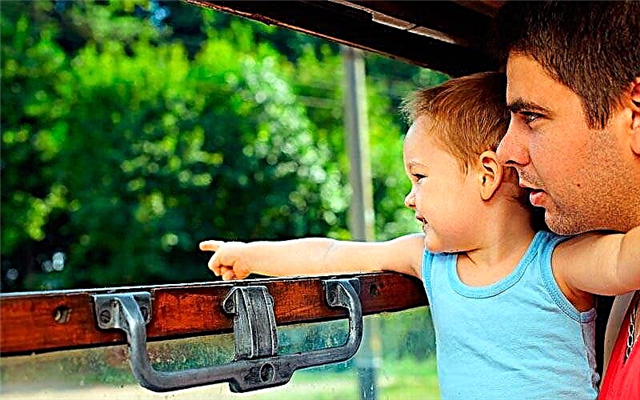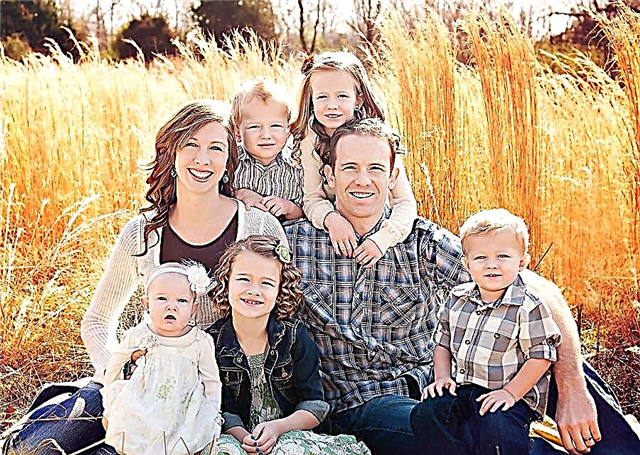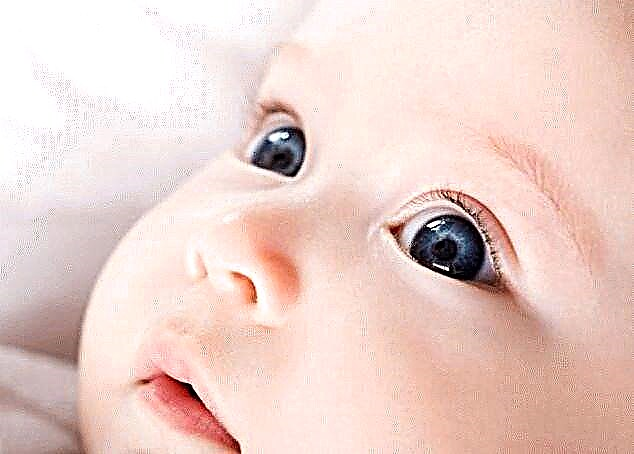Many parents are faced with the fact that their newborn child has difficulty falling asleep or, falling asleep, wakes up every quarter of an hour, does not agree to sleep in the crib. Establishing healthy sleep for a baby is one of the main tasks of a loving mother, because it is during these periods that babies grow and develop. Sleep consultants help to facilitate this work, very often they recommend using special sounds for falling asleep babies - this is a really simple, but working tool.

Newborns need sound, healthy sleep
Physiology of hearing in newborns
A person's connection with the outside world is based, among other things, on the ability to listen and hear. Hearing plays a huge role in the development of a child: he begins to distinguish sounds and different voices, tries to repeat them and thus learns to speak himself.
The ability to perceive sounds is formed in the baby while it is in the mother's stomach. In the womb, the fetus not only hears the sounds of the outside world, but even reacts to them: for example, it can shudder or follow the source of the sound with head movements.

Newborn baby's ear
Anatomically, the ear of a baby is no different from that of an adult (except perhaps in smaller sizes). However, immediately after birth, a little man is able to hear only sounds of increased volume, moreover, high and sonorous. The habit of adults "lisp" with a baby is based on this feature, because such sounds are pronounced, as a rule, in a loud and high voice.
Upon reaching 2-3 months, the baby is able to distinguish sounds that are less loud, of a lower timbre. His visual analyzers begin to work in tandem with auditory analyzers, the child learns to connect these impressions together. During this period, the baby may be frightened by a loud, sharp sound and express dissatisfaction with crying, as well as smile in response to a pleasant familiar sound (for example, a mother's voice, which the baby enjoys more than the sight of the mother herself).
Types of Newborn Sleep Noise
Sleep sounds are called white noise by somnologists. Scientifically speaking, these are constant monotonous noises that are distributed over all frequencies perceived by the human ear. In other words, it is sounding within the same tone, without any frequency drops. You can compare it with the familiar picture on the TV when there is no signal from the station.

Graphical representation of white noise
Important! Pure natural or technical noise of this kind does not exist, otherwise such a signal would have endless power. Therefore, the concept of "white" includes noises with high, middle and low frequencies indistinguishable by ear volume, merging into a monotonous sound.
Technical generation white noise comes from:
- working hair dryer;
- a humming vacuum cleaner (and the more powerful, the better);
- interference on the TV (idle station), free radio frequency in the receiver;
- spinning fan blades;
- measuring hum of the washing machine in the washing mode;
- the roar of engines of cars passing along the street (heard through the open window);
- the noise of a running engine when driving in a car and the sound of wheels in a train car.
The sound range of natural white noise:
- even rainstorm noise (no wonder they say that it sleeps well under the rain);
- the sound of water falling in powerful waterfalls;
- the lulling murmur of the brook;
- rustle of foliage in the forest;
- measured howl of wind or blizzard.
Why White Noise Calms Babies
Even adults fall asleep easily and serenely under white noise, without realizing it, for example, in a car, under the rhythmic sound of wheels in a train carriage, or under the cozy crackling of wood in the fireplace (sleepiness comes not so much from heat as from monotonous sounds).
Inexperienced parents may think that complete silence is needed for the best sleep of a nursing infant. However, her kids may get scared and stay awake for a long time, but the monotonous sounding has a very calming effect on them.
There is nothing surprising in this. Being for long 9 months in the mother's stomach, the baby hears the clatter of her heart, the sounds of blood flow and intestinal noises, as well as external conversations, music, the work of technology. Such intrauterine sounds are very familiar to newborns and return them to that pleasant period of development. This also explains why babies have such a good sleep in a stroller - the bubbling noise of the street and the creak of the stroller wheels act "sleepily".
Note! Many mothers intuitively reproduce white noise, trying to lull their baby to sleep, quietly hissing "shhhhhh" in his ear. The same gentle monotonous whisper helps to calm the baby, who accidentally woke up in the night and whimpers.
Neurologists and somnologists have proven the safety and effectiveness of using white noise to lull even newborns and babies into the first year of life. This tool works best for babies in the first three months after birth. However, there are no restrictions on the introduction of white noise to fall asleep - it's never too late to try it (even for nervous and tired mothers, it helps to fully relax).
Such monotonous sounds help not only to calm down and fall asleep sweetly for the baby, but also have a therapeutic effect for intestinal colic, so annoying to the crumbs.
The background noise helps the child both during the daytime and during the night's rest, masking extraneous sounds, "embedding" them in their own sound range.
The benefits of nature sounds for babies' sleep
Of the sounds to which babies fall asleep better, the sounds of nature are the most natural. It's hard to come up with anything more natural than birdsong or the sound of waves. Newborn babies are closer to nature, so its sound is very familiar and soothing for them. Every day a little person explores an unusual world for him, although it is pleasant, but still stressful.
In stressful situations, it is nature that helps to relax: the noise of raindrops, rustling of leaves, the measured hum of a waterfall and other similar sounds have a very beneficial effect on the mental state of the baby and allow you to forget about worries and fears. These are the best and most enjoyable sounds for babies to fall asleep to.
Sounds of nature is the best lullaby that exists in the Universe, as close as possible to a human being. That is why an excited baby can fall asleep from such a quiet noise faster and more soundly than even mother's "sleepy" song. However, it is possible to combine these two wonderful means to calm down the “clockwork” baby, to put him to sleep as soon as possible - they will not interfere with each other, but will only enhance the sedative effect.

Nature sounds - the best lullaby for babies
If the house is filled with a not entirely positive information environment (for example, a TV or computer is on, family relationships leave much to be desired, etc.), or just noisy, the child can also listen to the sounds of nature through headphones. This noise will allow you to plunge into a healthy, full and restorative sleep without any problems, after which the baby will be cheerful and energetic.
What are the benefits of listening to nature sounds for baby sleep:
- Even a child crying for a long time, not distracted by motion sickness or chest, suddenly calms down and calms down when white noise is turned on (in urban conditions, the murmur of a stream can replace water flowing from the tap);
- According to studies, most newborn babies literally "fall asleep" within 4-5 minutes under the influence of natural noise, while in the control group - only a quarter;
- The quality and depth of children's sleep, as well as its duration, improve: the baby does not wake up every 15-20 minutes, the fragmentation of sleep goes away, which allows children to rest and develop better;
- The problem of extraneous sounds (repairs, hum from the street, loud TV) is solved, which is especially relevant for mothers of the weather, when noisy and restless older children interfere with sleeping for newborn brothers and sisters (white noise perfectly masks all other unnecessary sounds);
- Young mothers, who simply cannot fall asleep from fatigue, are easier to relax and rest under these sounds, and peacefully and long sleeping babies give them time to work out.

A tired mother can relax under white noise with her baby
Safety rules for use
Despite the approval of pediatricians and enthusiastic reviews from other parents, some mothers fear that using white noise to fall asleep in babies can turn into addiction, a kind of "anchor" for sleep (both day and night), without which it will be difficult to cope with the baby when trying lay down. They are also afraid of any negative consequences for the still not strengthened nervous system of the baby or his hearing organs.
However, studies carried out in the society of somnologists have shown that white noise can in no way harm the central nervous system of children, both young and older. At the same time, the main safety rule should remain an acceptable sound volume - within 50 decibels (it can be compared with a calm conversation of adults with normal voices). You should also observe the distance from the baby's head to the noise source - it should be at least one meter.
Pediatricians are ambivalent about the so-called "falling asleep" toys that have a built-in function of white noise and are recommended by manufacturers for use almost from birth.

Toy "Sandman" with white noise function
Such gadgets turn off when the baby falls asleep completely (lies and does not move for a long time) and turn on again if the baby turns over (which means it can wake up). On the one hand, they help the baby to fall asleep sooner, on the other, in order to avoid suffocation and other health problems, it is not recommended to find blankets, pillows and toys in the bed.
After spending a long time in the womb, the newborn baby gets used to the monotonous noise. It is these sounds that, after birth, help the baby calm down and fall asleep quickly, this is the so-called. White noise. Sleep sounds for babies are natural (the sound of rain, rustling leaves, rolling ocean waves) and technical origin. Each mother can choose the most suitable options for her baby.



